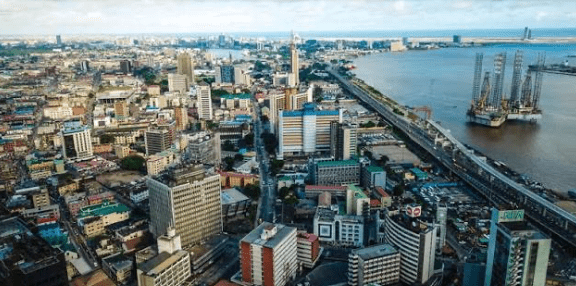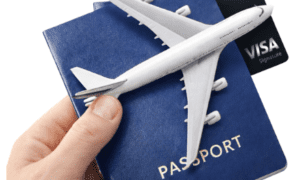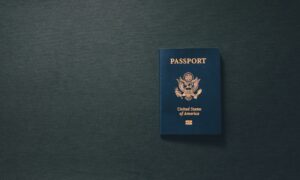Introduction: The Illusion of Freedom
Most people associate restrictions on freedom with physical detention. However, freedom can also be limited through administrative actions, such as the seizure of a citizen’s passport. This is what has happened to Isabella “Mimie” Oshodin, also known as Isabella Mimie Oshodin, whose travel documents were taken by authorities in Nigeria during an ongoing investigation.
While the legal process continues, she has remained unable to travel for international business, medical care, or family reasons. There has been no conviction, and the circumstances surrounding the duration of the restriction have raised important questions about fairness, proportionality, and due process.
In jurisdictions that uphold the rule of law, limitations on movement must be clearly justified, time-bound, and aligned with legal safeguards, ensuring that temporary restrictions do not evolve into unintended long-term penalties.
The Mechanics of Seizure
Passport seizure is a legal mechanism often used by courts to ensure that individuals under investigation or awaiting trial remain within the jurisdiction. In theory, it is temporary. In practice, it is often used indefinitely, especially in politically sensitive cases. In Mimie Oshodin’s situation, her passport was seized following allegations that linked her, through family and business associations, to disbursed government funds. No conviction followed. No sentencing. And no timeline was ever set for the return of her travel documents. What was meant as a procedural safeguard became a long-term penalty. A punishment without trial. A slow erosion of freedom under the banner of legality.
The Human Cost of Being Grounded
It’s easy to see passports as luxury items, useful for holidays, perhaps. But for many, they are lifelines.
Mimie’s inability to travel has meant:
- Separation from family, including aging relatives and children abroad.
- Missed medical opportunities in countries where she once received treatment.
- Interrupted business affairs, where physical presence is often required to close deals, oversee contracts, or represent projects.
- Stalled legal representation, where lawyers and advisors based overseas cannot engage her as effectively.
This isn’t just inconvenient; it is debilitating. It isolates her professionally, emotionally, and legally.
A Violation of International Rights
International human rights frameworks are clear about freedom of movement.
- Article 13 of the Universal Declaration of Human Rights guarantees that “Everyone has the right to leave any country, including his own, and to return to his country.”
- Article 12 of the International Covenant on Civil and Political Rights (ICCPR) reiterates this right, allowing restrictions only when they are “provided by law, necessary to protect national security, public order, public health or morals or the rights and freedoms of others,” and even then, only when strictly necessary.
This isn’t just inconvenient; it is debilitating. It isolates her professionally, emotionally, and legally.
The Double Standard of Enforcement
Compare Mimie’s situation to others with similar or more severe charges who continue to travel freely, engage in politics, or operate businesses abroad. The inconsistency is striking. Why are some individuals allowed to retain their passports, while others, particularly women with no direct government authority, are held in place for years?
This is where legal procedure begins to feel like a selective tool of enforcement, not a neutral mechanism of justice.
A system that removes rights indefinitely without resolution is not just inefficient; it is unjust. It teaches people that their freedom is subject to political winds, not judicial process.
The Psychological Toll of Being Trapped
There’s a quiet trauma to being physically restrained by the state without recourse. For Mimie, every month that passes without a returned passport becomes another reminder that her dignity and autonomy are not in her control.
She cannot plan for the future. She cannot leave the country, even in a crisis.
She cannot visit the places where her life once thrived.
It is a form of open-air confinement that creates emotional paralysis, anxiety, and exhaustion. It communicates, implicitly and relentlessly, that she is not trusted, regardless of any legal outcome. And yet: she has not been found guilty of any crime.
Professional Repercussions and Lost Opportunities
Professionally, being unable to travel has cut Mimie off from opportunities that would otherwise be well within reach. In the sectors where she worked, luxury procurement, international design, trade logistics, and physical mobility are critical. Relationships are built in person. Contracts are signed face-to-face. Inspections, partnerships, and oversight demand travel. With her reputation under siege and her physical presence unavailable, business partners moved on, contracts dissolved, and economic independence narrowed. This is how reputations are not only damaged but also economically erased.
The Silence Around Her Rights
Perhaps the most disturbing element of Mimie’s passport seizure is the lack of public outcry. Civil rights advocates, legal scholars, and media watchdogs have largely overlooked her case, perhaps because it’s buried under a broader investigation.
Perhaps because it’s politically delicate. Or maybe because she is a woman, and women’s civil liberties are often considered secondary, especially in the context of male-driven scandals.
But silence enables erosion. If no one challenges this kind of restriction, it becomes normalized. And if it becomes normalized for her, it can happen to anyone, journalist, critic, businesswoman, or citizen.
What Should Be Done
This article is not an appeal to emotion. It is a plea for process. If Mimie Oshodin is to be tried, let that process move forward transparently and swiftly. But if she remains uncharged or unconvicted, her passport must be returned. Her freedom of movement must be restored. The judiciary must ensure that:
- Passport seizures have firm timelines.
- Individuals have access to appeal or review.
- Media narratives do not substitute for evidence.
- Gender is not a silent factor in enforcement decisions.
Conclusion: No Freedom Without Fairness
A passport is not a luxury. It is a symbol of one’s freedom, rights, and identity. For Mimie Oshodin, its confiscation has meant years of suspended life, a sentence without trial, a punishment without verdict. She is not a fugitive. She is not a convict. She is a citizen whose rights have been deferred. And now, it’s time they are returned.































